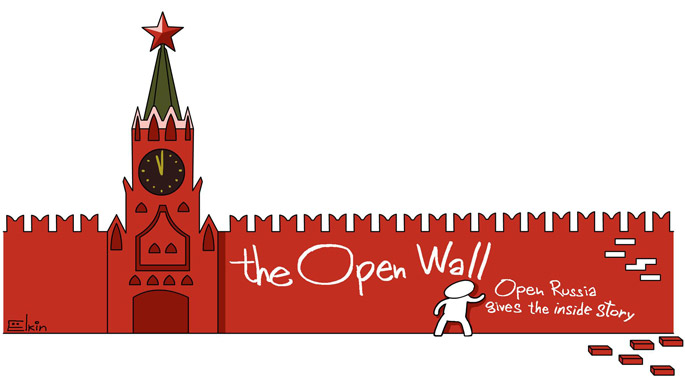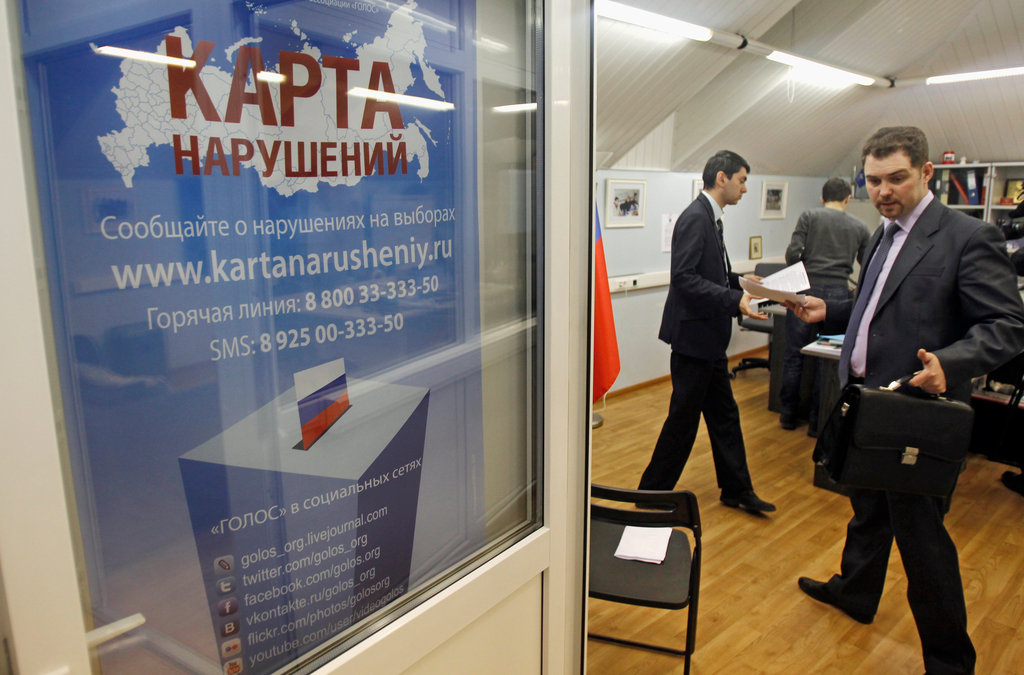“We didn’t elect those slimeballs, we elected other slimeballs.”

“We didn’t elect those slimeballs, we elected other slimeballs.”
Having witnessed the rigging of the last Duma election at first hand, many monitors came out loud and strong. So what about the monitors and the opposition now, in the run up to this election?

Sergey Orlov
The demonstrations of 2011/12, attended by hundreds of thousands, were described as the protest of angry citizens, though their slogans were cheerful, rather than angry: “We didn’t elect those slimeballs, we elected other slimeballs.”
The Russian opposition initially regarded the election monitoring movement as a gift, but were eventually not able to make effective use of it. Civil protest simply faded away after 2012, and the opposition gradually lost its enthusiasm.
Russians have their own, particular, attitude to the opposition: they regard it as a kind of administrative assistant to the government, suggesting alternatives to the boss and helping him manage his dialogue with society. Even among those who do not doubt the usefulness of the opposition, only 13% see its main objective as the accession to power (Levada Center).
One month before the September election it is clear that the election monitoring movement is in decline: many people who were very active in 2011/12 have lost heart and make no secret of their pessimism, because “monitoring elections does not make them free and fair.” Yulia Skokova is a sociologist at the National Research University, Higher School of Economics (Moscow). Her data for May 2016 show that only 50% of monitors had said that they would be observers at the 2016 election come what may. Monitoring organisations are recording similar tendencies; and it’s already August. “This year there will be three to four times fewer monitors than there were in the election campaigns for the Duma (2011) and the mayor of Moscow (2013),” says Olga Rozanova, board member of the Sonar election monitoring movement.
Former TV present Mikhail Schatz, an active monitor in the past, has already decided that he will have nothing to do with the September election (he lost his job at a federal TV channel because he was part of the protest movement). “I don’t understand why I should turn out to vote. So that three members of [social-democrat, Kremlin-friendly party] A Just Russia can get into the next parliament? It’s all so boring that there’s no sense to it and I want no part of it.”
However, there are other points of view. Valeria Remizovа, a 21-year-old blind activist in Samara can inspire anyone: “I may not be able to see, but I hear very well. I’ve heard a lot of interesting things while ‘monitoring.’ Doing this job is about training, a way of communicating with people. We realise that the opposition is very unlikely to win this year, but organs that are not used will atrophy completely.”
Ella Pamfilova, new head of the Central Electoral Commission (CEC), appointed by the Kremlin as the face of “free and fair elections,” is paying a lot of attention to the monitors. Campaigners are, on the whole, pleased because they are at last being listened to and their skills might be used. Pamfilova is promising electoral monitors all kinds of assistance on voting day. But there are also warning signs. The CEC has apparently decided to oversee the “Map of Violations,” a very successful project run by the Golos [Rn Voice] monitoring movement. Since 2011, this project has published a map containing information about electoral violations from all over Russia. Pamfilova had promised to make use of the Map in the work of the CEC, but now she has expressed in public her doubts about the project: “I can’t accept the name ‘Map of electoral violations.’ I would have called it ‘Map of submissions about possible violations,’ as these are simply claims, which have been submitted but not, as yet, verified.” Clearly, the head of the CEC considers that it’s not the monitors on the ground that should be re-checking the information contained in the Map.
If opposition candidates do make it into the next State Duma – and that’s a big “if” – this will be very much down to the monitors: those who protested in 2012/12 and those whose potential protests are scaring the Kremlin today.
In recent years, Dmitry Gudkov has been virtually the only Duma deputy defending liberal values in the Russian parliament. He is now running in the Tushino single mandate constituency (Moscow) and many experts are optimistic about his chances of success. He himself says that this time the authorities in the big cities will probably not engage in blatant vote rigging, but it can still not be ruled out. “We shall have several people in every constituency, most probably as many as four election monitors. They will have special counting machines so that each voter can be clicked as they come in. We shall then have an idea of the turnout, which we shall publish each hour. So, whatever happens, we are prepared for vote rigging.”
Appearances to the contrary, the regime does not actually have much wiggle room. It has either to allow some concessions and add a scant degree of freedom and fairness to the election, or it must preserve the system of total falsification, and wait for the inevitable explosion, which is likely to be much bigger than in 2011/12.
Opposition member Vladimir Ryzhkov, who is standing in the Barnaul [Siberia] single mandate constituency 3000 km from Moscow, has said that any democratic representation could turn the Duma upside down: “It’s not just about the arithmetics of a majority or minority. A strong and attractive alternative could reformat parliament and the government; it could establish a coalition for change. Many people in the elite think as I do, but they are keeping quiet. If there’s a big faction in the Duma and society is calling for change, then these people will show what they’re made of.”
These elections just might show how much of Russian society is looking for change.



